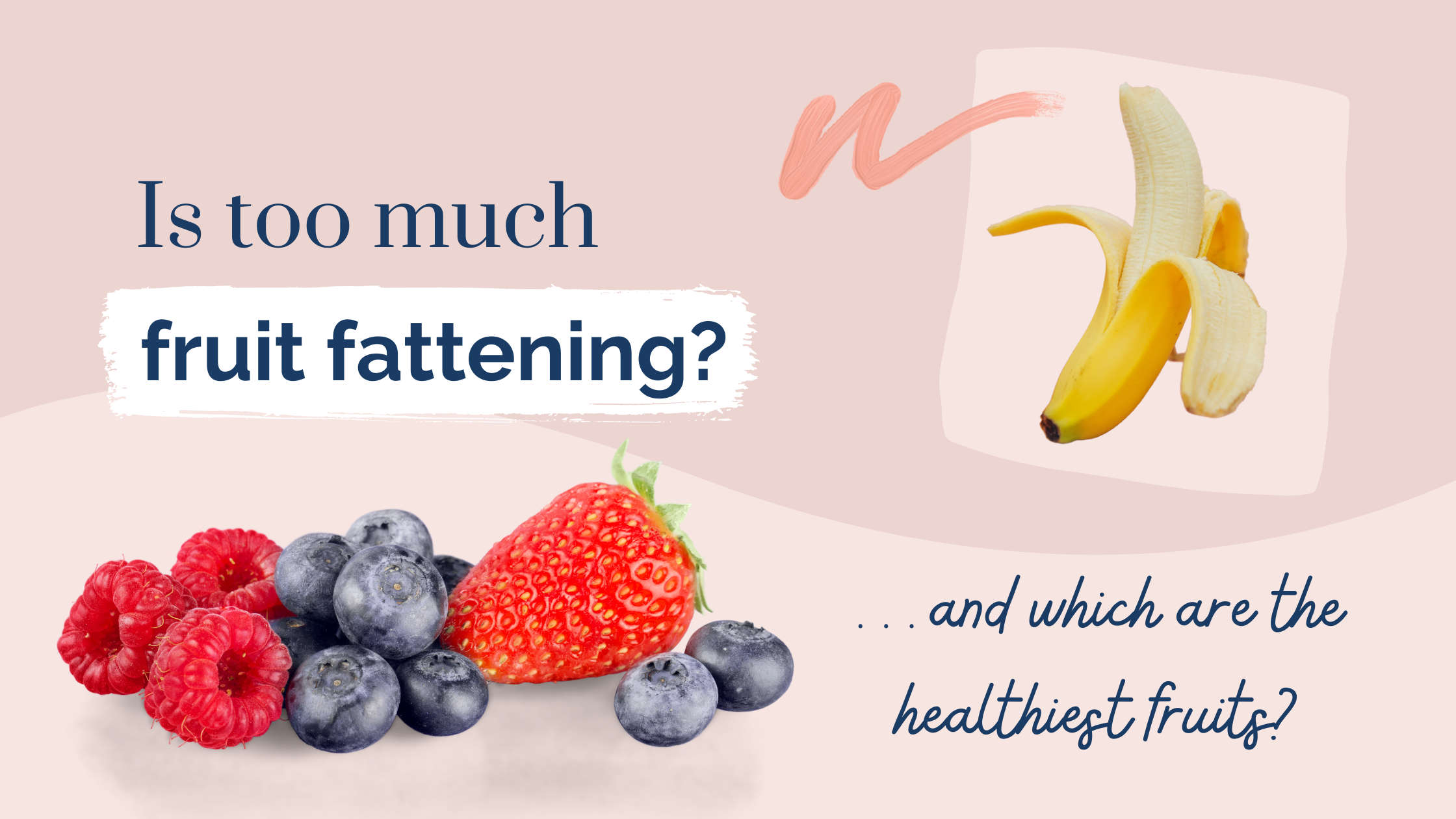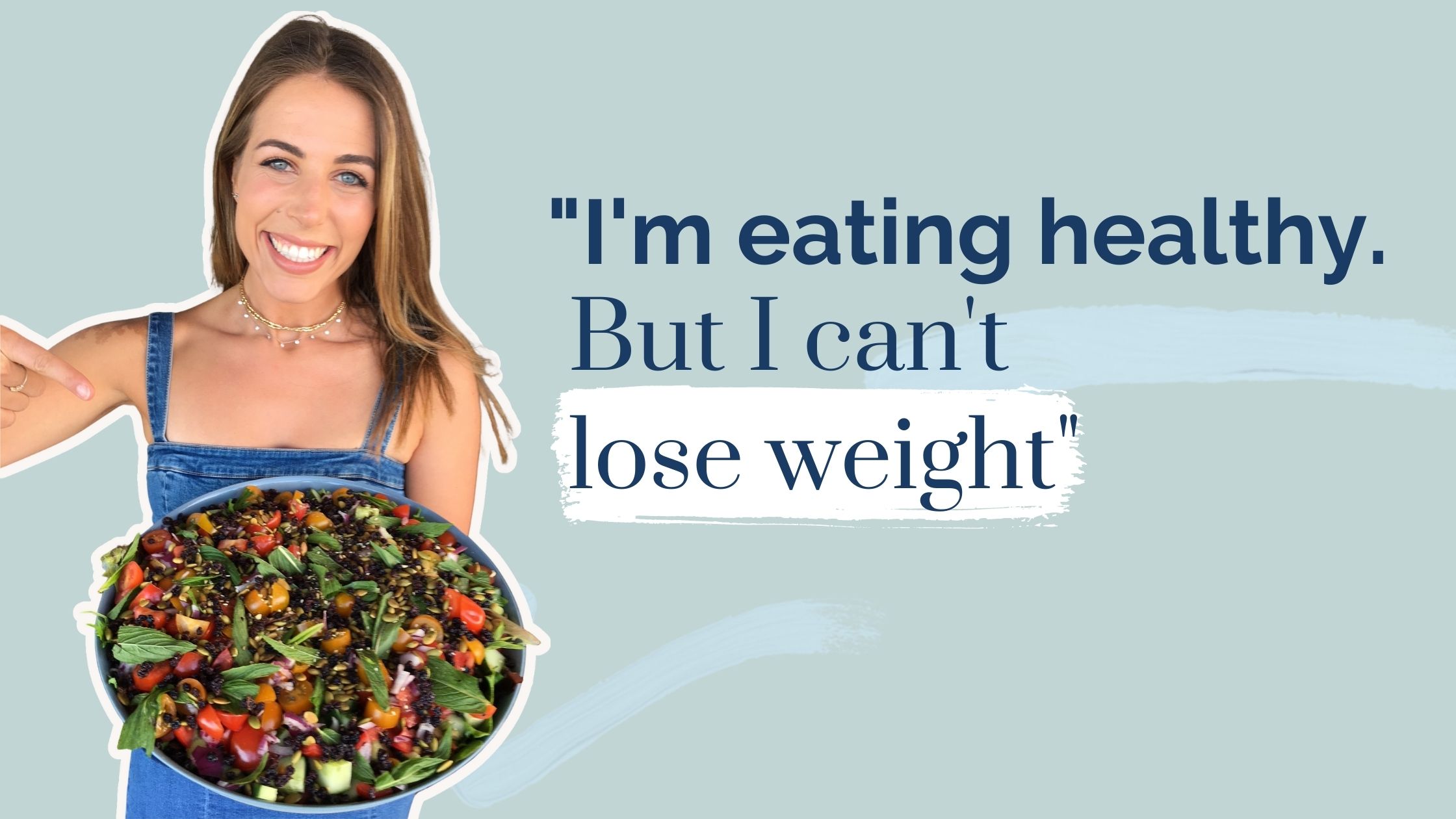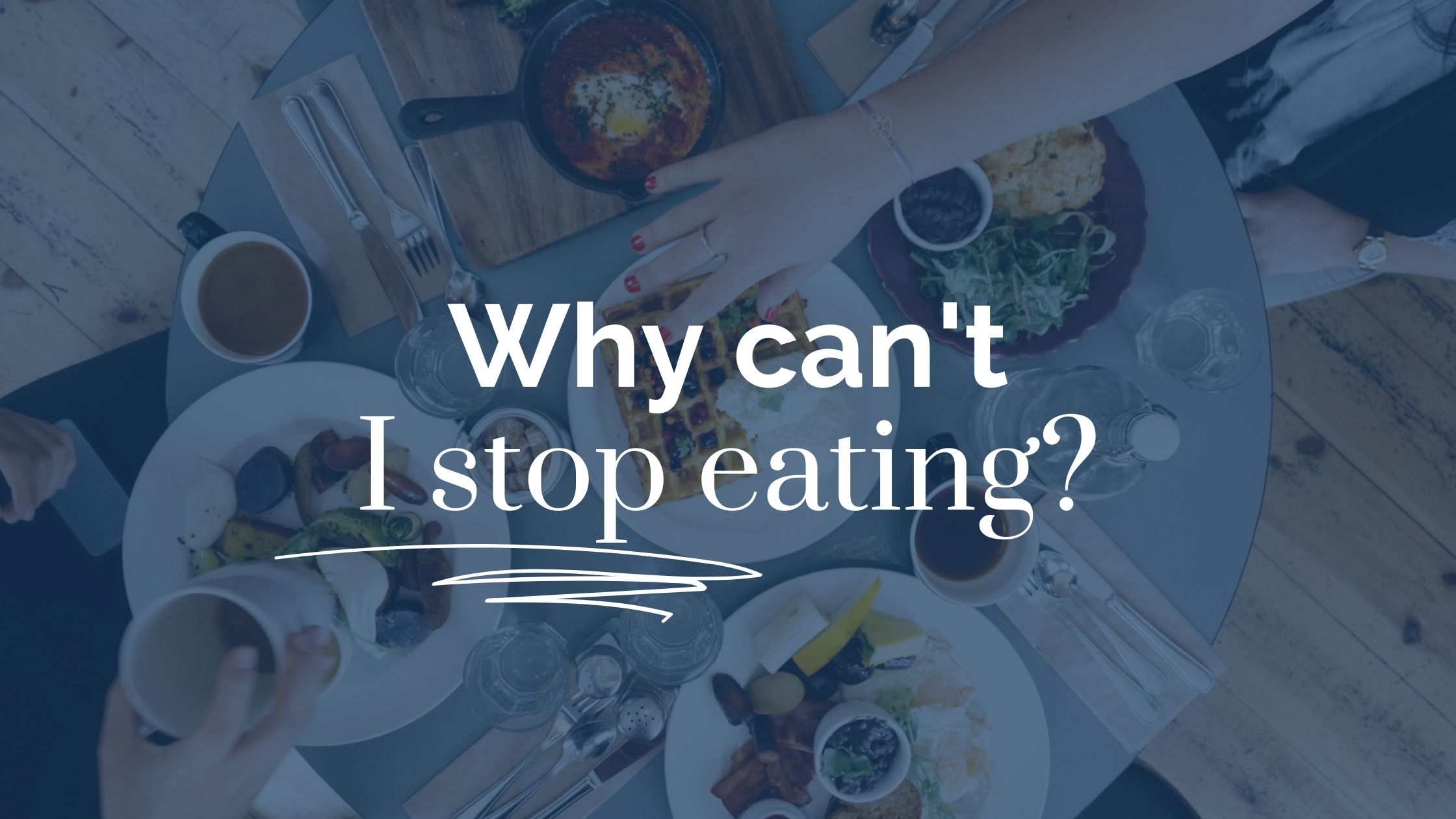Is fruit fattening?
Were you taught that fruit is fattening, a banana has too many carbs or you can only eat low-sugar fruit? If so, I’m very sorry! Read on to learn the truth about limiting your fruit intake when you’re trying to be healthy or lose weight.
You will have heard it before: “Fruit is fattening”, “Fruit is full of sugar”, “You shouldn’t eat too much fruit or you’ll gain weight”. I used to avoid fruit because I thought it has too much sugar and was making me fat.
The diet industry has taught us to fear perfectly healthy food like fruit and vegetables. As a result, the list of ‘allowed’ foods becomes so teeny, tiny that we’re left wondering “Wtf am I even allowed to eat anymore!”
But is fruit actually fattening?
The short and long answer is hell no. Fruit is not fattening at all.
In the health world, we have this annoying habit of blaming obesity on healthy foods like fruit, dairy foods, carbohydrates, nuts, avocado etc etc. But, these ‘everyday’ whole foods are not the problem! It’s a red herring. You shouldn’t believe everything you read.
To be honest? The problem is that we generally eat too much treat food like chocolate, cake, pies, soft drink. I know that’s a boring answer and not what you want to hear – because Pizza – but it’s the truth.
If you are trying to lose weight, becoming mindful of how much ‘treat food’ you eat is way, way, way more useful and effective than counting your pieces of fruit.
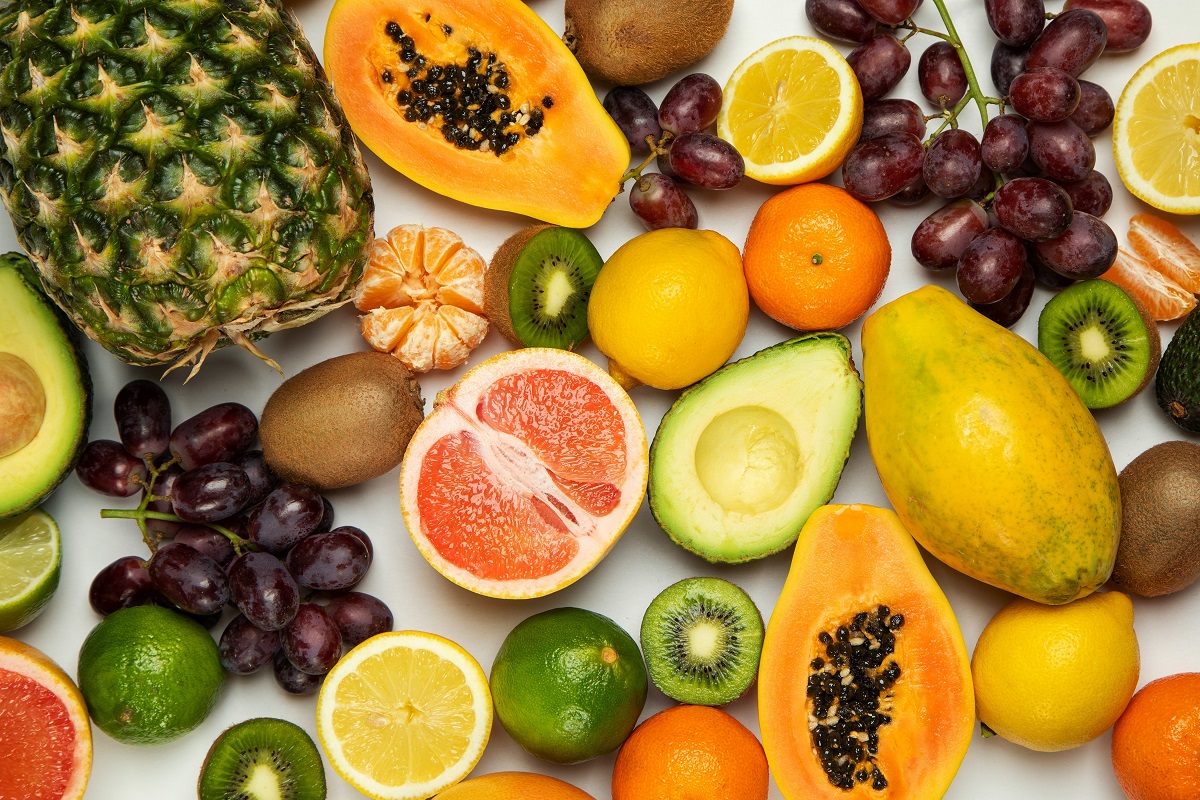
Is fruit sugar bad for you?
While fruit does have sugar (called fructose), it’s a naturally slow-burning sugar and reacts differently in your body when packaged in a whole piece of fruit. Where the sugar comes from matters.
Fruit has been around forever and for thousand of years, people didn’t get unhealthy or fat from fruit. The problem isn’t fruit. It’s processed, high-energy junk food.
Taking fruit off limits and making it ‘bad’ for you is a recipe for disaster.
Why? Because it makes you fear a perfectly healthy food.
So when you get sweet cravings, you’re less likely to turn to a piece of fruit (which is ideal) but rather, keep snooping around for something else that is ‘healthier’ (like a bliss ball – which is certainly NOT healthier than a piece of fruit) or low-calorie but nutrient-less rice cakes/corn thins.
On that note…want my FREE meal plan? It might be different from any meal plan you’ve seen before. Click HERE to download.
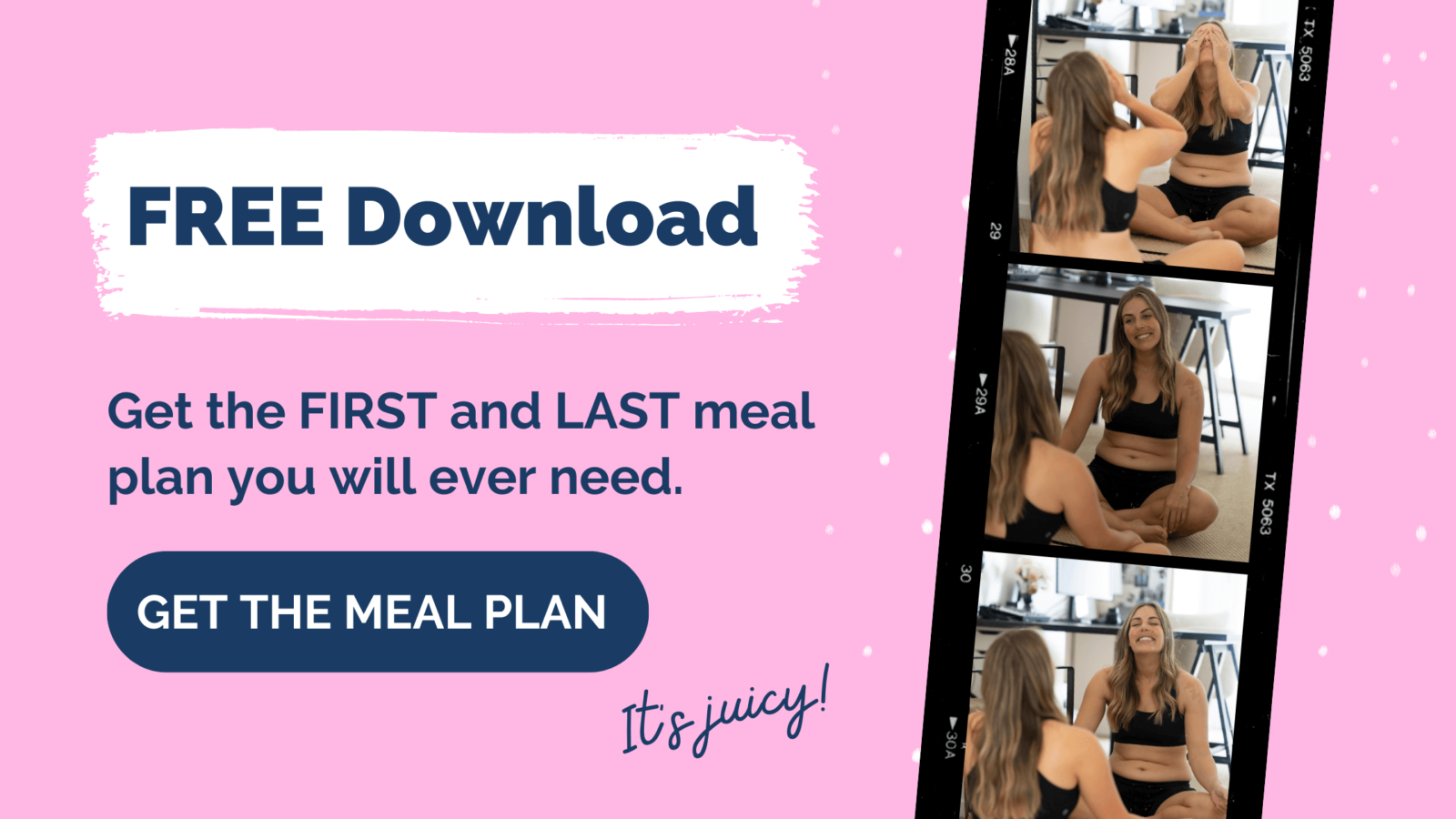
Things to know about fruit:
- Fruit is not fattening.
- Fruit is actually really healthy. I promise.
- Fruit has natural fibre.
- Fruit is naturally low in calories. (And because of the fibre, your body absorbs fewer calories than you would if you ate a fibre-less item with same amount of calories!)
- Fruit has sugar (fructose – which is slow burning and reacts differently in your body when packaged in a whole piece of fruit). Not all sugar is bad.
- Fruit has antioxidants.
- You don’t binge on fruit!
- Fruit is whole food.
- Fruit is delicious.
- Fruit is satiating.
- Fruit is cheap.
- Fruit consumption is linked with lower risk of disease.

When only 5% of Aussies eat their recommended fruit and veg for the day, our problem is not that we eat too much fruit – it’s that we don’t eat enough!
Want to lose weight? Do it the healthy way. Don’t cut out fruit! Make sure you’re hitting the recommended serves of fruit and vegetables per day (aim for at least 7!) If you still have room to eat treat food after you’re so full from filling up on the good stuff, become mindful of how much treat food you’re eating. Simples!
By the way, a serve of veg or fruit is about the size of your fist (or about 1 cup).
What is the healthiest fruit or vegetable?
In all my time as dietitian and nutritionist, this is probably the question I get asked the most. And the answer is simple:
There is no one super fruit or veg that can give you all the nutrients you need.
Here’s the thing: to eat a healthy diet you need variety!
The trick is to constantly mix up what you’re eating, and what better way to do this than eating seasonally.
🍎 A healthier approach: keep your diet varied, exciting and nutrient-dense.
💰 Save money at the checkout: snag great discounts when buying seasonal foods.
🌏 Better for the environment: locally grown foods tend to travel fewer kms.
🤤 Seasonal foods may be tastier: beautifully ripe and grown in the best conditions to thrive.
If you want to achieve a healthier, well-balanced diet try my app Back to Basics. It’s packed with delicious, budget-friendly recipes, enjoyable workouts and expert mindset support.
As fruit is not fattening…what is the healthiest way to eat it?
Besides from what Instagram makes you think, fruit doesn’t have to be fancy to be good for you. You don’t need to buy punnets of Blueberries, Acai berries, Goji berries and other trendy berries to get an antioxidant boost. Just eat a whole piece of fruit.
– Eat fruit whole –
Munching on a whole piece of fruit, with the skin on, is about as healthy as it gets. It’s way healthier than any ‘health food’ snack or protein ball. And at around $1 a pop, it’s a damn cheap and easy way to get healthy. So, when you’re hungry for a snack or craving something sweet – bite into an apple, pick up a juicy mandarin, enjoy a punnet of strawberries or eat a banana.
– Eat fruit that is in season –
It’s cheaper, tastier and healthier.
– All fruits are good fruits –
There is NO fruit that is healthier for you than others. Don’t avoid bananas because you think they have too many carbs. Don’t only pick berries because they are lower in sugar. Each fruit has value. Do not discriminate against fruit ;)
-Try new/different fruits –
“An apple a day keeps the doctor away?” Actually, it’s best to try different or new fruits throughout the year. Variety ensures you get a mix of nutrients instead of the same nutrients day-in and day out. It’s more like ‘a piece of fruit a day keeps the doctor away”.
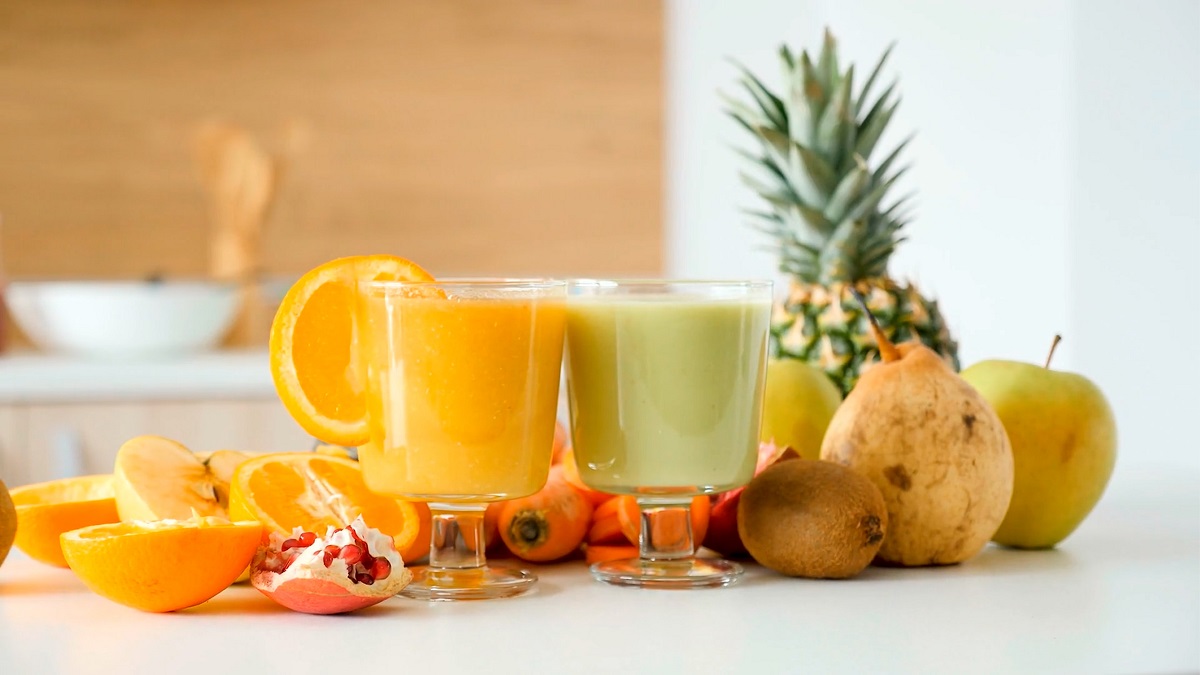
Is fruit juice healthy?
Have you ever juiced your own orange juice? If you have, you’ll know that it takes at least six oranges to make a serve of fruit juice! Now, when would you ever sit down to eat six oranges? Pretty much never, right…
It’s common sense to know that eating six oranges at one times isn’t the best choice. Even still, eating the six oranges instead of juicing them would be even better for you because real, fresh fruit has way more fibre than juice. (Fibre not only keeps you regular, it helps you feel full and also prevents against diseases).
So, when I talk about fruit – I’m not talking about fruit juice. Fruit juice is different. I think fruit juice is a nice occasional or ‘sometimes’ food.
Is dried fruit healthy?
One of the things that makes fruit filling and healthy is that it’s made up of loads of water. When you dehydrate or dry out fruit, it shrinks. So you will want to eat more to fill up your stomach.
So, does that mean dried fruits are fattening and should be avoided?
Heck no.
Just be mindful of dried fruit. Opt for no added sugar varieties. Grabbing a family-size bag of dried fruit and snacking on it from your desk isn’t a good plan! (You shouldn’t eat in front of a screen or at your desk, anyway).
When you have dried fruit, have a handful and then eat it mindfully and slowly. If it didn’t satisfy, then reach for a whole piece of fruit. If you’re hungry, then eat substantial, non-snack food like a sandwich.
If you want more guidance with healthy eating – check out my app Back to Basics. Step into our little community and get easy recipes, family-friendly meal planning, enjoyable workouts and expert mindset support to be healthy without dieting and dodgy health advice.
Start your FREE 7-day trial today.


